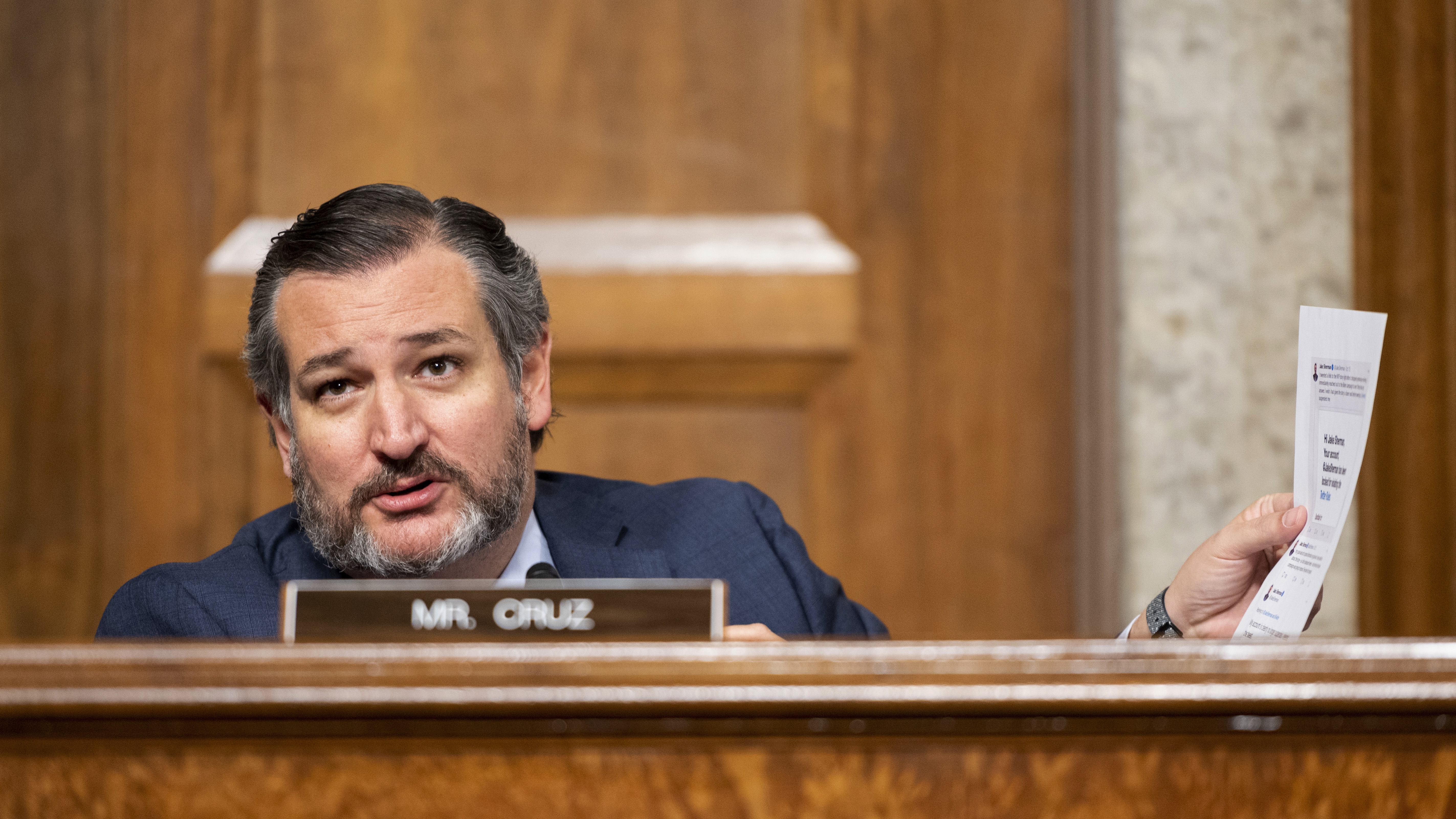Republicans pen letter against return of earmarks: 'Cannot imagine a worse way to build back trust in Congress'
Earmarks are avenues for lawmakers to direct funding to pet projects in their home districts in spending bills
Republicans publicly released a letter written to the chairs of the appropriations committees Wednesday that “strongly opposed” the return of earmarks, weeks after Democrats announced plans to bring them back and rebranded them “community project funding."
“Nothing epitomizes what is wrong with Washington more than pork-barrel spending in the form of congressional earmarks,” the lawmakers, led by Rep. Ted Budd, R-N.C., and Sen. Ted Cruz, R-Texas, wrote. “We are writing to strongly oppose resurrecting what is widely considered one of the most wasteful and corrupt practices in congressional history.” The letter was addressed to appropriations committee chairs Sen. Patrick Leahy, D-Vt., and Rep. Rosa DeLauro, D-Conn.
“We cannot imagine a worse way to build back trust in Congress than to resurrect a system that has been roundly rejected as corruptive and wasteful for decades.”
Earmarks are avenues for lawmakers to fund pet projects in their home districts in spending bills. They were banned in 2011 amid the Tea Party wave.
DEMS RELEASE PLAN TO BRING BACK EARMARKS
The letter was signed by 23 GOP heavyweights in the House and Senate. In the upper chamber, names including Joni Ernst of Iowa, Rick Scott of Florida, James Lankford of Oklalahoma, Josh Hawley of Missouri, Ron Johnson of Wisconsin. Mike Braun of Indiana, Pat Toomey of Pennsylvania, Mike Lee of Utah and Steve Daines of Montana signed the letter.
In the House, Reps. Jim Jordan of Ohio, Lauren Boebert of Colorado, Andy Biggs and Paul Gosar of Arizona, and Chip Roy of Texas, among others, signed the letter.
They pointed to the Alaskan “bridge to nowhere,” a political pet project that secured a $223 million earmark in 2005. The earmark was later rescinded, as were plans for the bridge, which would have connected the tiny Alaskan city Ketchikan to its airport, as opposed to the ferry system already in place.
The lawmakers also noted the “indoor rainforest" in Iowa. Sen. Chuck Grassley, R-Iowa, convinced lawmakers to set aside $50 million for the project. Federal funding was later rescinded and the project never came to fruition.
They also pointed to the Teapot museum in North Carolina, and “absurd research projects like one analyzing goth culture.”
“In an era of trillion-dollar deficits and a $27 trillion debt, it is hard to imagine how we will ever be able to restore any form of financial responsibility if big spenders in the halls of Congress are able to use earmarks to keep spending money we don’t have,” the letter concluded.
The House Appropriations Committee unveiled its plan to bring back earmarks in late February.
Before that, Budd and Rep. Ralph Norman, R-S.C., resurrected the Earmark Elimination Act in the House.
The Earmark Elimination Act has earned support from some Democrats when it has been introduced in the past, but it’s unclear if any will go for it this time around.
WHAT'S IN BIDEN'S $1.9T STIMULUS PLAN?
The committee says the earmark process has been "reformed" with checks in place to make sure the project funding is dedicated to "genuine need and not subject to abuse."
Under the new plan, lawmakers would be required to post funding requests online to a searchable website the committee will set up when they submit them to the Appropriations Committee.
Meanwhile, the Senate is drawing up its own bill to bring back earmarks.
The earmark issue has divided Republicans. The House Freedom Caucus has taken a hardline stance against them, while other members are open to the idea of gaining some spending power over the Biden administration.
House Minority Leader Kevin McCarthy, R-Calif., has said he would review Democrats’ proposal and speak with his party about it. "It can't be what was around here before. There's got to be accountability," he said at a press conference on Friday.
GET FOX BUSINESS ON THE GO BY CLICKING HERE
Some Senate Republicans seem open to the spending system. "I'm not against earmarks," said Sen. Richard Shelby, of Alabama, the top Republican on the Senate Appropriations Committee, "I'm against bad, frivolous earmarks."




















